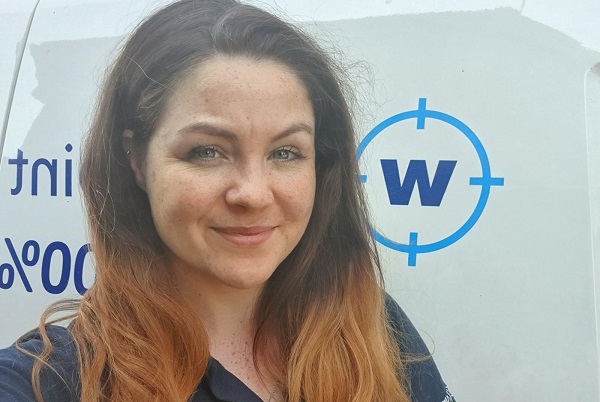Brucella canis: what vets need to know
14 Feb 2024
13 Oct 2021 | Ami Sawran
Part of BVA’s #BigConversation on microaggressions. Ami Sawran, BVLGBT+ Committee Member, explains why some well-intentioned comments can hurt LGBT+ colleagues, and why we don’t need to be defensive when we make a mistake.

Picture the scene, you’re out for a well-earned post-work drink. A single wasp flirts dangerously with your glass. You swipe at the air. Is your evening ruined? No. It’s a minor inconvenience, and your light-hearted conversation continues unbroken.
Imagine now the wasp brings its mates along. You can’t really blame them, your drink is sugary, they’re hungry and drowsy – they don’t know any better. You swat them away, but your conversation is thrown, and frustration rises.
Individually these tiny upsets don’t factor into your memory of that night, but if these waspy insults are repeated, you might suggest a different beer garden for your next outing.
That’s sort of how I feel about microaggressions, except the consequences are far greater than having to choose a new pub. They can make the difference between feeling welcomed and loved, and othered and shamed. At first glance, some do look a little harmless, and might well be ignored or deflected by a simple answer, but when these microaggressions are repeated (and not necessarily just by one person on any given day), they amount to a dangerous swarm of negativity that is difficult to overcome.
There is always a degree of difficulty in accepting that well-intentioned behaviour can harm another person. One could argue that some microaggressions (usually the questions) are misguided attempts to show an interest in a person. Let’s be blunt though - uninvited discussion of any person’s sub-underwear body parts is, when you think about it, deeply odd. Curiosity is entirely natural, but when knowing the answer to some of the questions levelled at our trans colleagues isn’t going to change anything in your world, these questions seem entirely pointless. I cannot imagine this being a line of enquiry in any cis circles, (you’re unlikely to meet your new colleague and enquire as to whether he is circumcised!), and when we know this to be harmful and hurtful, there’s no reason to do it. Similarly, apparent concern for the partner of a bisexual person brings along with it an assumption that attraction to more than one gender is synonymous with a rampant desire to be unfaithful. (It isn’t, by the way).
Some microaggressions could even seem like compliments that elevate us above other people in our social demographic. How could anyone possibly be offended by the suggestion that they’re pretty? It might be because we have (perhaps inadvertently) been shown that we have been categorised as an undesirable ‘type’ before the words are even out of your mouth.
Microaggressions are confusingly named because it’s rare that they are delivered or intended aggressively. They’re small insults to wellbeing, but even small things can chip away at someone to the point at which they become injurious. You might be the first person who’s equated being gay to being bad that week, and you might be the hundredth. And really, when we have many other words for ‘terrible’ at our disposal, is it necessary to use ‘gay’ as a pejorative?
I’ve heard people say, “Why come out and draw attention to yourself if you don’t want to talk about it?”. I would love there to be a day when a flippant disclosure of sexuality by referencing a partner or an experience didn’t cause a ripple through a conversation, or give way to an interrogation, but we’re still not quite there. Of course, we could simply check ourselves, and not mention anything that might ‘give us away’, but since cis or straight people don’t have to make this conscious alteration to their life stories, I don’t really feel like we should have to. Equally, as mentioned in my previous BVA blog, I want my matter-of-factness to reassure others questioning their own sexuality that they aren’t alone. I rather think the forethought should be right before a microaggression – “Does this matter?”, “Is this my business?”, and most importantly, “How might it make this person feel?” and truly, I have never heard something follow “I’m not homophobic but…” that wasn’t wildly homophobic.
Defensiveness surrounding microaggressions tells LGBTQIA+ colleagues that your feelings about your intentions are more important than the effect they have on others. These posters and blogs aren’t here to tell you that you’re a bad person for having previously said some of these things –they’re intended to provide some forethought. After all, we’re all learning and growing together in what we hope will be a more diverse and inclusive profession.
BVLGBT+ is a volunteer organisation with the aims of building a veterinary LGBT+ community, supporting LGBT+ individuals in the veterinary professions and campaigning for LGBT+ rights. For more information and to join visit the BVLGBT+ website.
This blog is part of the BVA #BigConversation on microaggressions. You can download posters to help start the conversation in your workplace, or read our blogs looking at microaggressions related to:
Get tailored news in your inbox and online, plus access to our journals, resources and support services, join the BVA.
Join Us Today